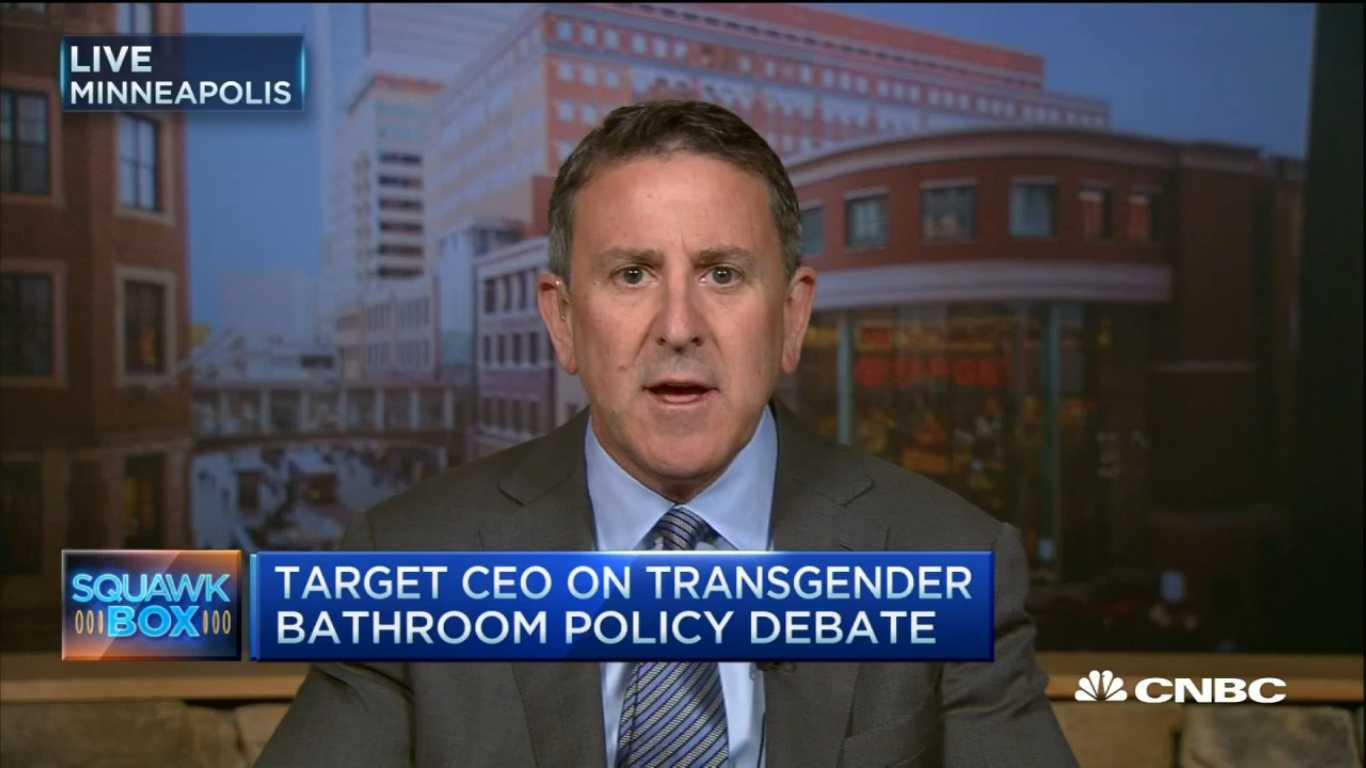 During an interview on Wednesday, the CEO of the national retail chain Target defended the company’s restroom and fitting room policy—allowing men who identify as women to use female facilities and vice versa—in the face of a national boycott and falling stock prices.
During an interview on Wednesday, the CEO of the national retail chain Target defended the company’s restroom and fitting room policy—allowing men who identify as women to use female facilities and vice versa—in the face of a national boycott and falling stock prices.
“We took a stance and we’re going to continue to embrace our belief of diversity and inclusion—just how important that is to our company,” Brian Cornell said on CNBC’s “Squawk Box.”
He compared the backlash over the matter to the criticism the company received when it first used blacks for models in advertising.
“A couple weeks ago, one of our team members sent me a note reminding me that if we went back to the mid-60’s, our company was one of the very first to use African-American models in their advertising, and back then, it wasn’t well received,” Cornell said.
He noted, however, that the company plans to add more family restrooms in an effort to quell concerns over privacy and safety. Cornell said that approximately 1,400 of its 1,800 stores currently have that option.
“We’re committed over the next few months, to make sure every one of our stores has that option, because we want to make sure that our guests be welcomed in our stores,” Cornell said. “But if there’s a question of safety, I can tell you and others, our focus on safety is unwavering, and we want to make sure we provide a welcoming environment for all our guests, one that’s safe, one that’s comfortable.”
As previously reported, Target outlined its company policy last month surrounding controversy over “bathroom bills” passed in North Carolina and Mississippi.
“In our stores, we demonstrate our commitment to an inclusive experience in many ways. Most relevant for the conversations currently underway, we welcome transgender team members and guests to use the restroom or fitting room facility that corresponds with their gender identity,” the announcement said.
“We regularly assess issues and consider many factors such as impact to our business, guests and team members. Given the specific questions these legislative proposals raised about how we manage our fitting rooms and restrooms, we felt it was important to state our position,” it continued.
The announcement drew both applause and criticism, and some vowed to discontinue shopping at Target until it changed its policy.
“I will no longer be shopping at Target,” one former customer wrote. “It is your right as a business to establish policies, but … you will also have to deal with the consequences.”
The Mississippi-based American Family Association (AFA) soon also launched an official pledge campaign to boycott Target. The effort has thus far obtained 1.2 million signatures.
The organization said that it believes Target should provide a single occupancy restroom to help solve the issue.
“One solution is a common-sense approach and a reasonable solution to the issue of transgendered customers: a unisex bathroom. Target should keep separate facilities for men and women, but for the trans community and for those who simply like using the bathroom alone, a single occupancy unisex option should be provided,” AFA recommended.
“We want to make it very clear that AFA does not believe the transgender community poses this danger to the wider public,” President Tim Wildmon also clarified. “Rather, this misguided and reckless policy provides a possible gateway for predators who are out there.”
Stocks have also fallen in recent weeks following the company’s announcement, decreasing from $84 to $75.70 a share over the past month.
Become a Christian News Network Supporter...


